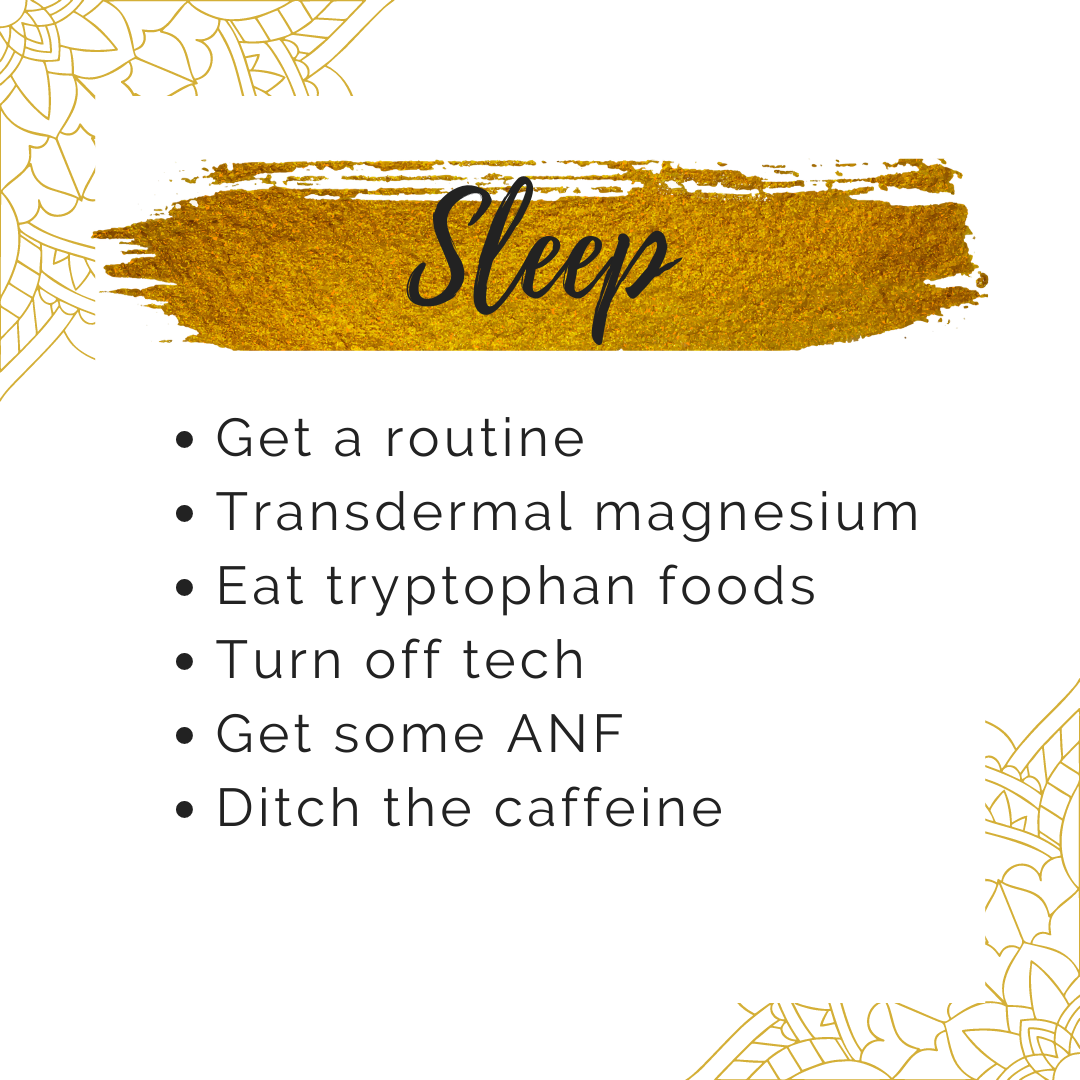Day 8
Sleep
You’ve probably heard that sleep is super important. But sometimes getting enough is pretty hard going.
So let’s look at why we need sleep, how much we need, what happens if we don’t get enough and how you can improve your sleep hygiene to optimise your life.
If you are tired when you wake up, feel like you have no energy but are totally wired, have accumulated weight from seemingly nowhere and are experiencing colds and niggles then you need more sleep.
Our bodies are most influenced by light/ dark and temperature- it signals a load of stuff in the brain that tells the rest of the body what to do. If our lifestyle environment isn’t conducive to sleep, then guess what? … it won’t happen!
We are unwittingly altering our biological rhythms that control our hormones, neurotransmitters and neural frequencies. By utilising tech, lighting, TV, being active in the dark and eating late at night we are sending all the wrong signals to our brain, test we should be being ‘busy’ and not needing to sleep.
This will then bring in physical symptoms such as fatigue, fertility issues, dehydration, poor skin, digestive issues, poor recovery, increased inflammation and decreased mental acuity
Sleep is about hormones.
As you go through the day the levels of melatonin increase and decrease. As they should do according to our daily circadian rhythm. As we wake melatonin levels are their lowest, they are at their highest at around 4 hours after darkness. An increase in melatonin is that we begin to feel sleepy.
Melatonin is an antioxidant working to remove free radical damage. It is essential to balance; human growth hormone, testosterone, oestrogen, ghrelin and leptin. A decrease of sleep means less leptin (which makes you feel full and not hungry) and more ghrelin (which makes you hungrier).
Simple things to assist your sleep will have the biggest impact.
Bedtime routine- going to bed should be at the same time each evening, ideally 9:30-10pm. Meaning that you’ll get as many hours sleep before midnight as possible. Often taking a warm bath/shower, or reading a book.
Try magnesium- the best most absorbable form is transdermals- spa rays/oils. Magnesium increases GABA, which encourages relaxation as well as sleep, also helps regulate the body’s stress-response system.
Turn off technology 1 hour before bed time- Blue light signals daytime to your brain as its absorbed through the eyes. So try and turn them off earlier or put your phone in the other room. Or if you have to work, try installing check out iris or wear blue blocking glasses after sundown if you are using artificial light.
Eat sleep inducing foods before bed- Melatonin is a derivative of the amino acid tryptophan, if you’ve ever wondered why you get sleepy after Christmas day lunch. Well turkey is filled with tryptophan!
Listen to a sleep stories or binaural beats- as a child did you fall asleep when someone was telling you a bedtime story? Well it’s no different as adults. It can kill you to sleep- try the Calm app.
Try ANF Therapy- Which can be used to reduce inflammation and improve the bodies own natural melatonin production.
NO caffeine after midday- it triggers the release of adrenaline and cortisol, which can keep your body switched on for hours, and has been shown to can significantly disrupt your sleep. Especially if you are slow caffeine metaboliser.
📜 Disclaimer: The content is intended for informational and educational purposes only. This information is not intended to diagnose, treat, cure, or prevent any disease or medical condition, and should not be used as a substitute for any and all professional and/or medical advice. Recipient of this notice so affirms before partaking in any and all information and related links, etc.



